1 Adding Milk to Scrambled Eggs
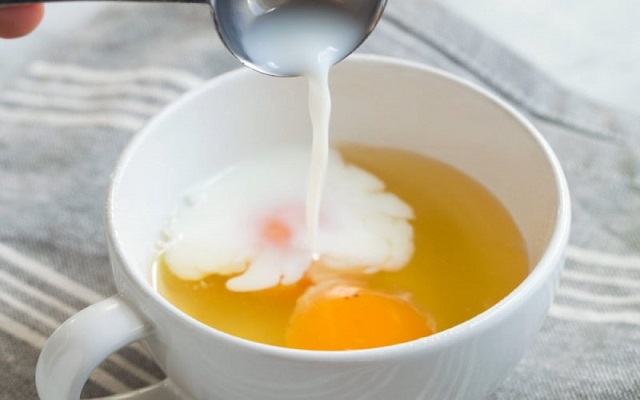
Plenty of people add milk to scrambled eggs, hoping for a fluffy, creamy finished product. But the truth is, milk can actually ruin your eggs. Adding milk to your scrambled mixture makes your eggs rubbery rather than fluffy, resulting in a meal that requires far too much chewing.
Instead, add unseasoned eggs to a pan on low heat. Stir the eggs until they’re nearly done, then take them off the pan. At that point, you can add extra seasonings, such as sour cream. Sour cream added at the end of your cooking process will give your eggs the creamy consistency you were hoping for with milk, plus a little extra tanginess in the flavor.
2 Cooking Potatoes At a Full Boil
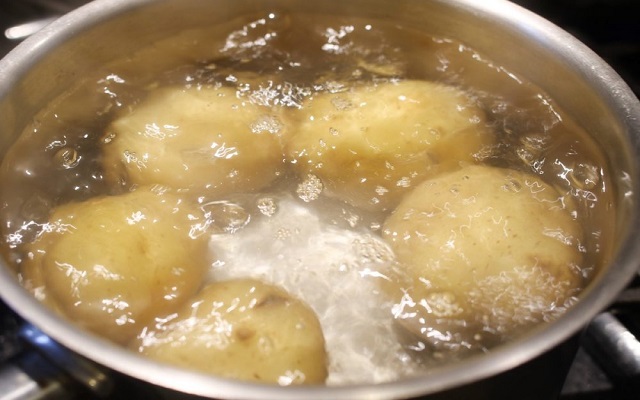
Boiling potatoes is a preferred method of cooking that’s actually not that effective. Many people cook their potatoes at a full rolling boil, only to find that the potatoes aren’t cooked evenly when the water is drained. The outsides are overcooked and too soft, but the insides are still raw. So what’s the problem?
Well, a rolling boil isn’t the best way to cook potatoes. Instead, you should simmer the potatoes for about 15 minutes until you can easily pierce them with a fork. Simmering cooks the potatoes more slowly, allowing them to cook evenly from the outside to the inside. It may take slightly longer, but you’ll end up with perfect potatoes.
3 Checking On Your Rice While It Cooks
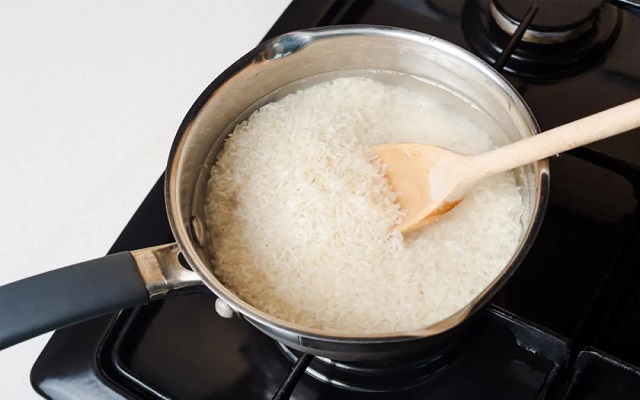
Rice is another dish that just needs to be left alone while it cooks. When you’re not confident in cooking rice, it’s tempting to check every few minutes to ensure that all the water is being absorbed. But when you open the lid to check on the rice, you release both steam and heat, which messes up the rice to water ratio.
When cooking rice, it’s best to just trust the process. Set a timer and don’t allow yourself to touch the lid of your pot until it goes off. Chances are the rice will emerge perfectly fluffy and delicious without any interference from you.
4 Marinating In a Metal Bowl
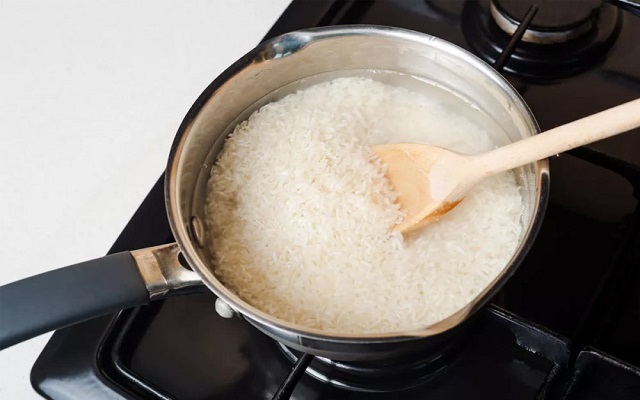
Speaking of marinades, marinating your meat isn’t as easy as throwing it in any old bowl and leaving it alone for 24 hours. Most marinades are very acidic and will react with the metal in a metal bowl. Rather than a delicious dish, you’ll find yourself digging into a meal with an odd metallic flavor.
To avoid imparting a metallic flavor to your meat, stay away from metal bowls when marinading. Instead, marinate your meat in a plastic bowl, plastic bag, or ceramic dish. These receptacles will allow your meat to soak in the flavor of the marinade without imparting any odd tastes to your food.
5 Flipping Steaks Only Once
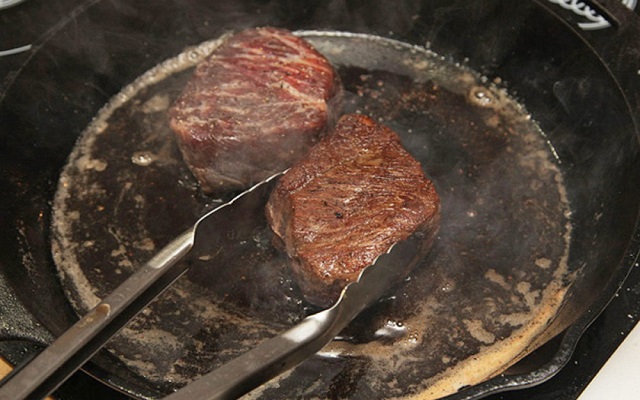
You’ve heard it time and time again: You should only flip your steaks once. As it turns out, that advice is totally bogus. While flipping your steak once allows a nice crust to form on the outside, it also ruins the opportunity for the inside of your meat to cook to perfection.
When you flip your steak more frequently, you allow the inside to cook evenly and eliminate the opportunity for one side to heat up or cool down too quickly. Your crust might not be quite as impressive, but the inside of your meat will be flawless with frequent flipping.
6 Adding Oil to Pasta Water
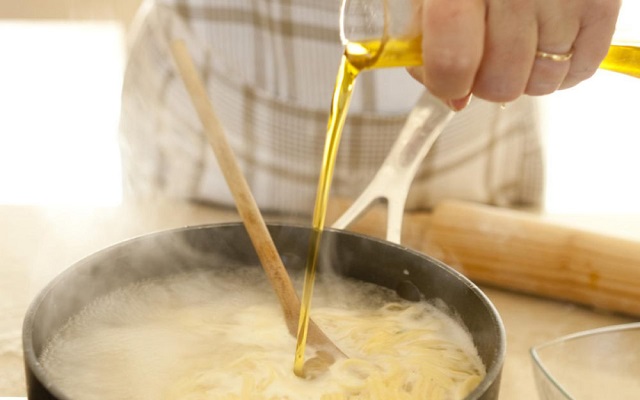
Remember how we said rinsing your pasta after cooking it makes it sticky? Well, some people have noticed the issue, so they try to combat the post-rinse stickiness by added oil to the pasta water.
Unfortunately, oil isn’t a good solution. While oil will help your pasta not to stick together, it will also keep the sauce from sticking to your noodles. Instead of adding oil, stir the pasta as you cook it to keep the noodles from sticking together. Also, take the pasta out of the water when it’s al dente and toss it with the sauce before it cools. The warm noodles will break apart as soon as they have something new to stick to.
7 Overcooking Onions
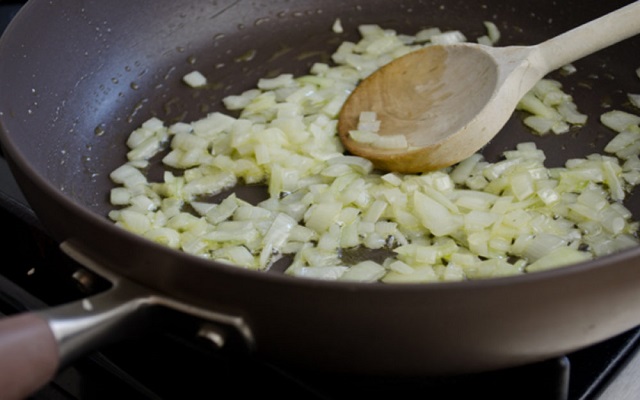
Onions are often the first thing you add to a pan, as they need time to cook and soften into the dish. But many people make the mistake of assuming that their onions require far too much cooking.
Onions only need about a minute to soften up and add their flavor to a dish. Any more time on the stove will result in burnt onion bits that add an unwanted smoky flavor to your meal. Remember, the onions will still cook as you add other things to the pan. Don’t ruin your dish from the start by cooking with burnt onions.
8 Not Seasoning Your Cooking Water
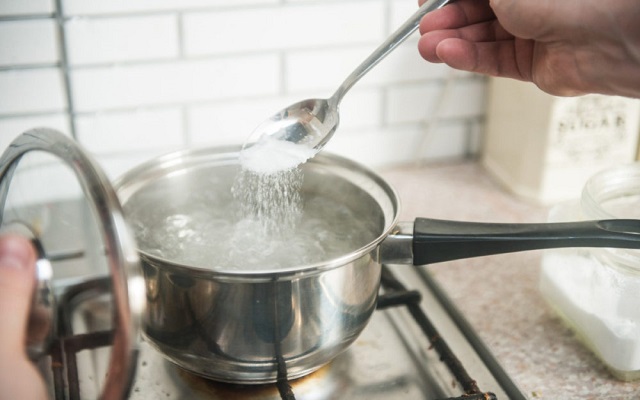
At this point, you should know that you should always salt your pasta water. But did you realize that you should season any water you’re used to cook? If you’re cooking potatoes, salt the water. If you’re boiling veggies, salt the water.
A little salt in the water allows you to enhance the flavor of whatever you’re cooking. Of course, you shouldn’t over-salt your pot. Just add a little sprinkle of salt to any cooking water to take your most basic dishes to the next level in flavor.
9 Not Rinsing Canned Beans
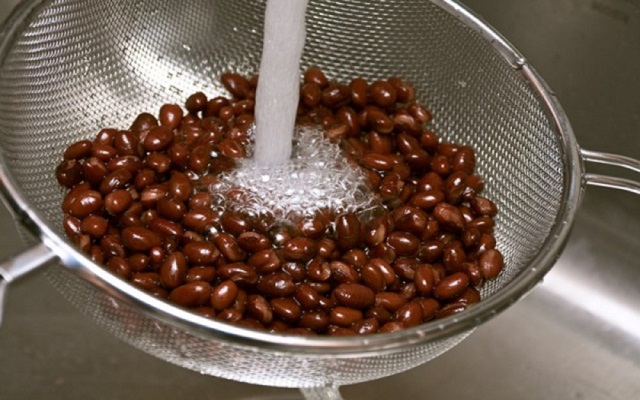
When you open canned beans, you can easily see that they’re sitting in a cloudy liquid. What you might not realize, however, is that simply straining that liquid and pouring the beans into your dish isn’t the correct method. The beans actually need to be rinsed off before they go into your cooking.
By not rinsing the beans, you fail to wash off a whole lot of sodium and extra starch that will find it’s way into your dish. Unless the recipe specifically calls for liquid, drain your beans and rinse them all off in a strainer. Not only will you get rid of any lingering metallic taste, you’ll also create a slightly healthier ingredient to add to your meal.
10 Opening the Oven to Check Your Food
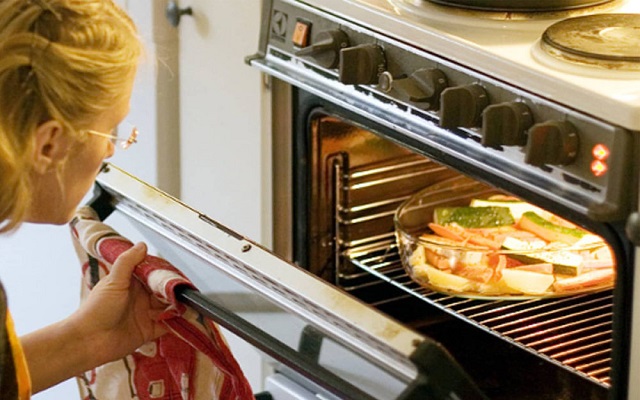
Sometimes the food you’re cooking needs your constant attention. But other times, you simply need to leave your dish alone. Cooking in the oven is one of those times.
While it’s tempting to check on your dish constantly while it sits on the oven rack, opening the oven door might ruin your meal. Every time you open the door, you release heat and decrease the temperature of the oven. When the door is closed again, the oven has to get back up to temperature, which could extend your cooking time. Once you put your dish in the oven, leave it alone until time is up. If you simply must check on it, turn on the light and take a peek through the oven window.
11 Boiling Veggies In Cold Water
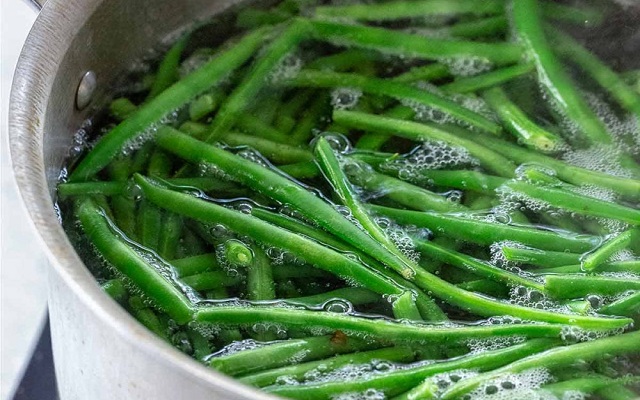
When you boil starchy vegetables like potatoes and other root veggies that grow in the ground, you place them in a pot of cold water and bring it to a boil before reducing to a simmer. That’s completely the right method. However, you can’t use this same technique on veggies that grow above the ground.
When boiling above-ground veggies like corn, start with a pot of water that’s already boiling, as you would for pasta. Dropping these veggies into a pot of boiling water allows the cell walls to soften, cooking the veggies quickly and perfectly. If you put the veggies in cold water and allow them to boil, you’ll overcook them every time, resulting in wilted, unappetizing sides.
12 Not Sifting Flour
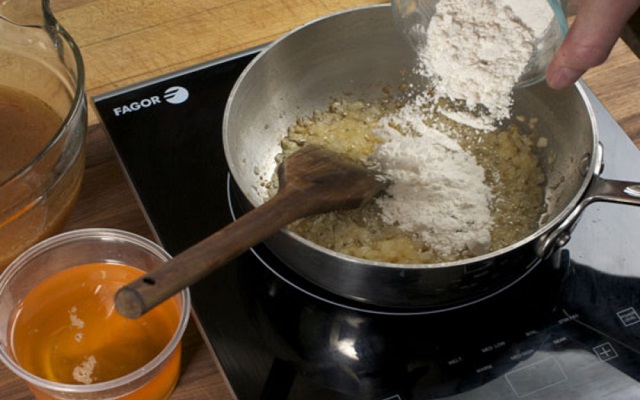
Flour is a key ingredient when baking, but it’s also useful in savory forms of cooking. When making a gravy or a sauce, flour helps to thicken the consistency, creating a dense, rich concoction.
However, you can’t just toss flour into a gravy and hope for the best. You have to push the flour through a sifter as you incorporate it into your sauce. Sifting the flour ensures that you don’t end up with a sauce full of lumps. By adding flour with a sift, you’ll end up with the smooth, thick sauce you’ve been dying to make.
13 Not Adding Pasta Water to Your Sauce
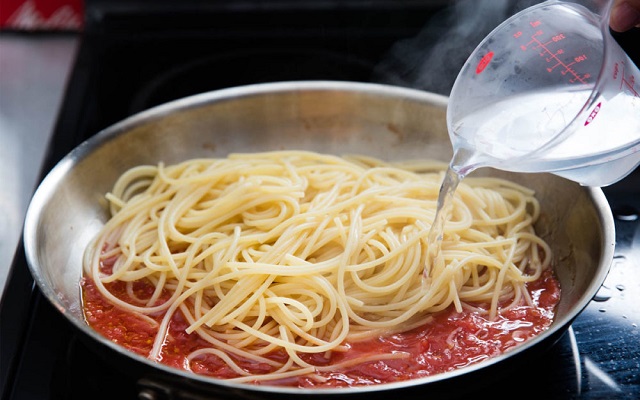
When you cook pasta, you often toss out all the water as you strain it. But when you’re pouring the pot of liquid down the drain, you’re actually getting rid of an essential ingredient that could make your dish that much better.
Each time you cook pasta, reserve half a cup of the pasta water and add it to your sauce. The starchy, salty water not only adds flavor to your sauce, but it can also help the sauce stick to the pasta more effectively.
14 Speeding Up The Cooking Process
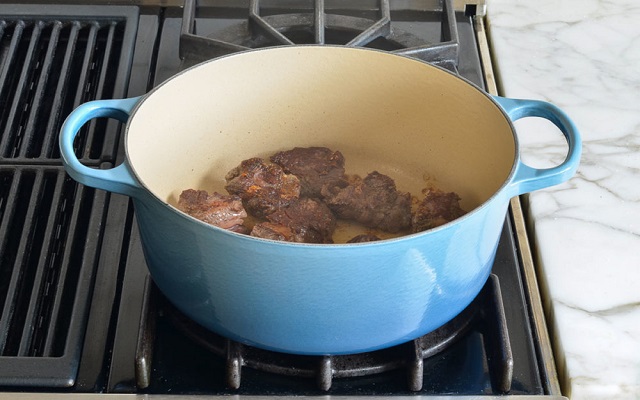
Certain meals are conducive to a short cooking time. If you’re looking to make a meal in half an hour, there are plenty of recipes at your fingertips that will work perfectly. But what you shouldn’t do is try to speed up the cooking process if the recipe demands a long cooking time.
Some recipes, particularly stews, will ask you to simmer your meal for two or more hours. If you’re in a hurry, you might think that you can simply increase the temperature and cook the dish twice as fast. But that’s not the case. While your meal will cook at a higher temperature, a rapid cooking time will ruin the consistency. Instead of a final dish that looks appetizing, you’ll end up with dry meat and a thin sauce with little flavor. Remember, slow and steady wins the race.
15 Marinating Seafood Too Long
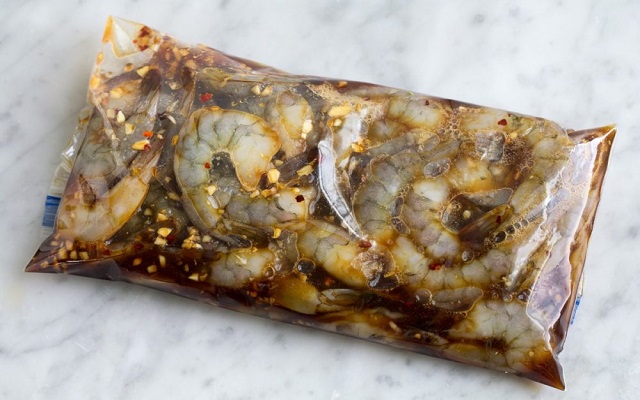
When cooking a nice piece of red meat, most people know that more time in the marinade generally results in a better meal. A nice marinade ups the flavor of your dish, and red meats need a while to soak in all those delicious tastes. However, seafood doesn’t need to marinate as long as red meat. In fact, fish, shrimp, and other seafood shouldn’t sit in a marinade for more than 2 hours. If the marinade is especially acidic, you should take your seafood out within 20 minutes.
When seafood sits in a marinade too long, the juices will essentially “cook” the seafood, leaving it soft, mushy, and not that pleasant to eat. A short marinade time works for seafood, so don’t feel that you need to prep your shrimp 24 hours in advance.
16 Using Cold Ingredients
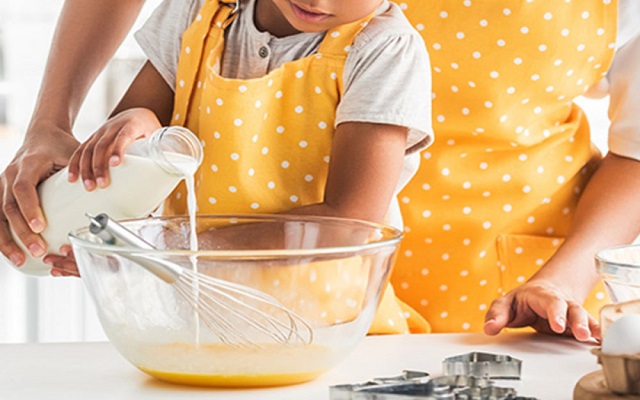
When baking, the temperature of your ingredients actually matters. It sounds ridiculous, but it’s the truth. While putting together your mixture before placing it in the oven, it’s easiest to grab items like milk from the fridge and put them right into your concoction. However, you should actually allow your ingredients to warm up to room temperature before mixing them into your batter.
By putting room temperature ingredients into your concoction, you allow them to combine more easily with the rest of the components. Your batter will be easier to mix, and your final product will be even fluffier and more delicious. When you’re at the start of preparing your batter, take all refrigerator ingredients out and place them on the counter to allow them to warm up slightly before they go into your mix.
17 Always Choosing Lean Ground Beef
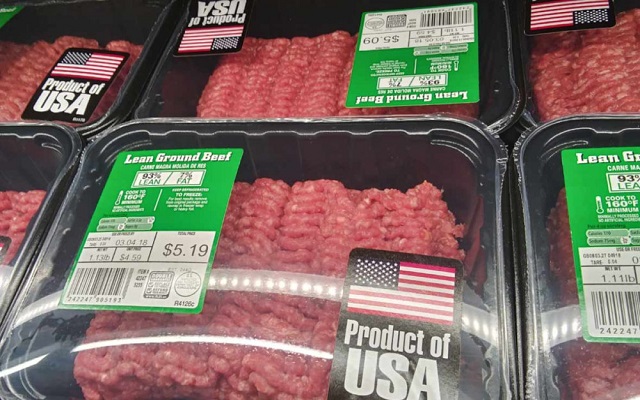
When choosing ground beef at the store, you’re probably drawn to packages labeled “lean”. After all, lean is supposed to be healthier, so why wouldn’t you eliminate some unneeded fat from your meal?
The answer is simple: sometimes you need that fat. When cooking burgers, meatloaf, or meatballs, you should opt for a beef with a higher fat ratio. The fat in the meat will lend some moisture to your food, creating juicy, mouth-watering meals. Lean beef is great for meat sauces, tacos, or casseroles, but the perfect burger requires fatty meat.
18 Cooking Mash With Waxy Potatoes
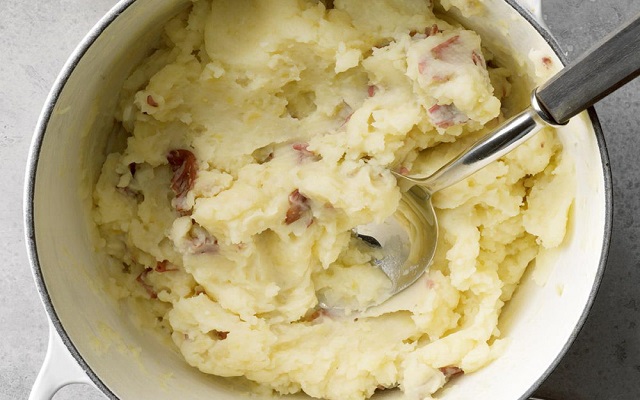
What’s better than a thick, creamy bowl of mashed potatoes? Every cook dreams of creating restaurant-worthy mashed potatoes that are both delicious and smooth. But when it comes to making your mash at home, it might not turn out exactly how you dreamed.
Thankfully, it may not be your cooking skills that create a subpar mash, but the potatoes you use! For smooth, soft mashed potatoes, you should look for Russets or Yukon Gold, which have a high starch content. Red and white potatoes have a waxier consistency that often results in lump-filled mash.
19 Rinsing Pasta
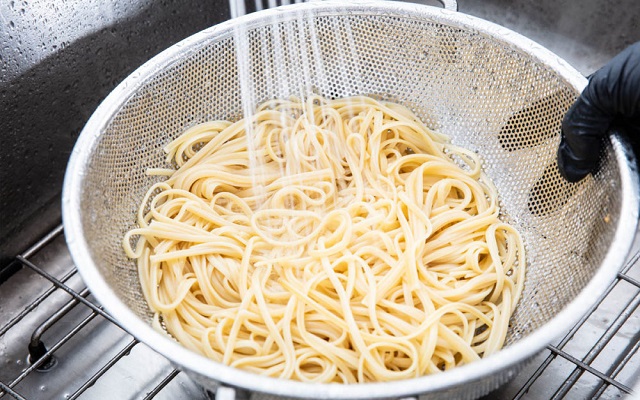
When you strain your pasta after cooking it, rinsing it in cold water might be your normal routine. Plenty of people make this mistake, as they’re told that rinsing the pasta allows the cooking to stop and keeps it from going mushy. However, properly cooked pasta won’t go mushy, and rinsing it could actually do more harm than good.
By rinsing your pasta after it cooks, you force the noodles together, creating a sticky texture that’s entirely unappetizing. Not only that, but you cool down the noodles, which creates a lukewarm dish even after you add a steamy sauce. Eliminate rinsing your pasta noodles from your routine and trust that they’re cooked well. If you can do that, we guarantee you’ll be much happier with your non-sticky dishes.
20 Cooking Meat In A Cold Pan
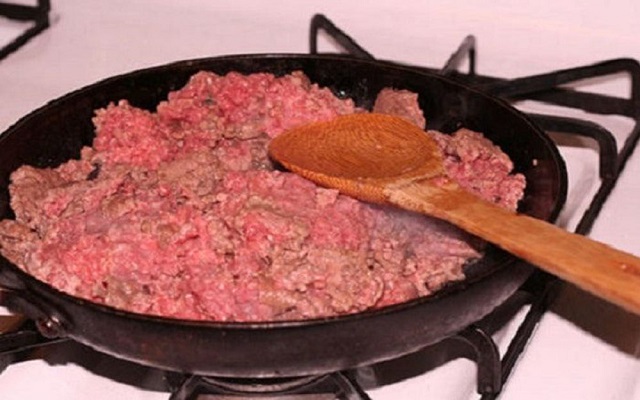
This is a mistake that too many people make and unfortunately spoils your meal. You should never add your raw meat to an unheated pan. This will cause your meat to stick to the bottom of the pan and you will not get a nice, deep sear on your meat.
To avoid these inconveniences and obtain a perfectly cooked meat, make sure to put a little layer of oil to the bottom of your pan and let it heat up. When your pan is very hot, it is time to add your meat. You will immediately see the difference and you will never make the mistake again!
Source: www.traveltips.cc
